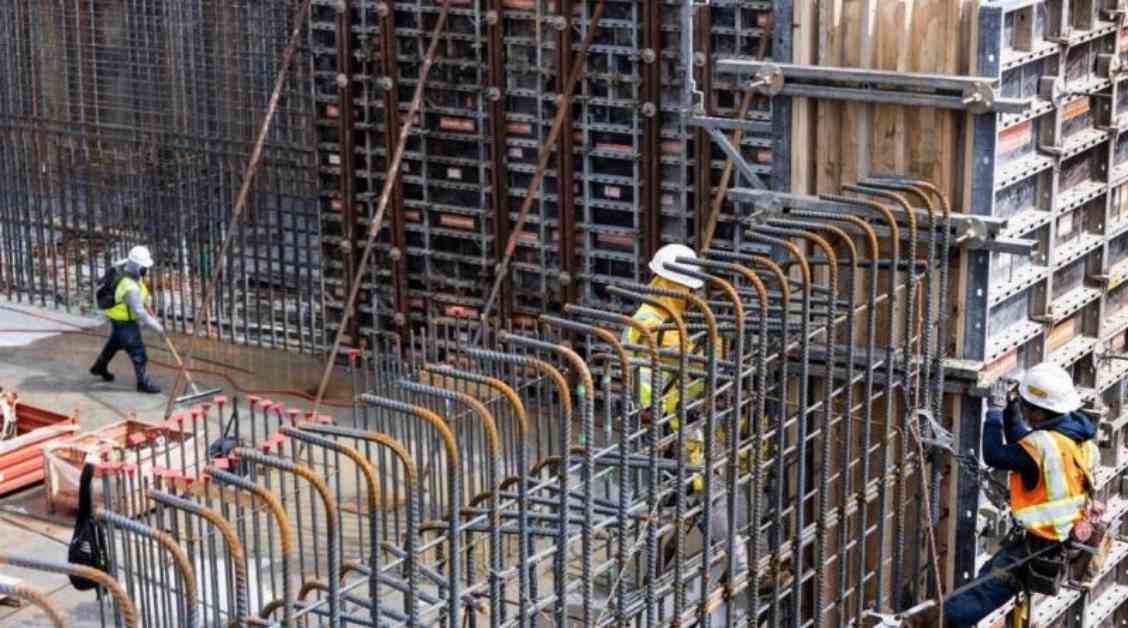As the shift towards electric vehicles (EVs) accelerates in the United States, the auto manufacturing industry is undergoing significant changes. With policies like the Inflation Reduction Act and the Bipartisan Infrastructure Law driving investments of over $154 billion into EV production, the landscape of auto manufacturing jobs is evolving rapidly.
According to data from the U.S. Bureau of Labor Statistics, nearly 900,000 workers are currently involved in manufacturing internal combustion engine vehicles and their components. However, as EVs become more prevalent, the demand for traditional auto manufacturing skills is expected to shift.
Key Differences Between Internal Combustion Engine and Electric Vehicles
One of the key differences between internal combustion engine vehicles and EVs lies in the powertrain systems. While traditional vehicles rely on components like gasoline engines and fuel injection systems, EVs are powered by electric motors and battery packs. This shift is expected to impact workers involved in manufacturing specific parts relevant to internal combustion engines.
For example, workers focused on gasoline engines and engine parts manufacturing may experience disruptions as EV production increases. On the other hand, suppliers of non-powertrain components that are common across all types of vehicles may see minimal impacts.
As the market for internal combustion engine components shrinks, suppliers will need to adapt to the EV transition by retooling their manufacturing facilities. Small and medium-sized businesses with lower profit margins may face challenges in converting their production lines for EVs or diversifying into other sectors.
Growing Demand for New Skills in EV Manufacturing
The transition to EVs will require workers with technical and digital skills to handle the shift towards electrochemical production processes. Skills in chemical engineering, materials science, battery chemistry, and battery management software will be in high demand.
Additionally, jobs related to the design, development, and manufacturing of EVs, batteries, and charging stations will see significant growth. The battery manufacturing industry is expected to expand rapidly, creating opportunities for engineers, technicians, assemblers, and other production workers.
Artificial Intelligence and Vertical Integration in Auto Manufacturing
The increasing use of artificial intelligence (AI) in auto manufacturing is transforming the industry. AI technologies are being leveraged to streamline research and development processes, predict battery maintenance, and enhance vehicle design and development.
Automakers are also moving towards vertical integration by bringing battery and component production in-house to improve supply chain control. However, this shift may have implications for traditional automotive suppliers and could potentially lead to job displacement.
Ensuring Job Quality and Fair Compensation
As EV manufacturing expands in the U.S., concerns about job quality and fair compensation have been raised. The decline in wages, working conditions, and union bargaining power in the auto industry over the years has been a point of contention.
The transition to EVs is reinforcing regional patterns in auto manufacturing employment, with significant investments in EV production occurring in certain states. Ensuring fair compensation and job quality for workers in the EV industry will be crucial for a successful transition.
In conclusion, the shift towards electric vehicles is reshaping the auto manufacturing job landscape in the U.S. From transforming traditional manufacturing processes to creating demand for new skills and ensuring fair compensation for workers, the EV transition presents both challenges and opportunities for the industry. Coordinated efforts from stakeholders will be essential to navigate these changes and support a skilled workforce in the evolving auto manufacturing sector.








